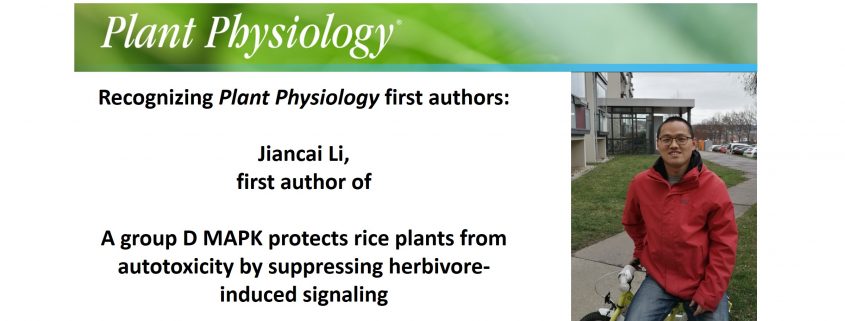Recognizing Plant Physiology first authors: JianCai Li
Jiancai Li, first author of A group D MAPK protects rice plants from autotoxicity by suppressing herbivore-induced signaling
Current position: Postdoctoral fellow at Max Planck Institute for Chemical Ecology, Germany.
Education: Ph.D., Agriculture Entomology & Pest Control, Zhejiang University, Hangzhou, Zhejiang, China; B.S., Plant Protection, Shandong Agriculture University, Tai’an, Shandong, China.
Non-scientific Interests: Basketball, music and movies
Brief bio: After general and enjoyable undergraduate study in plant protection, I showed strong interest in insect-plant interactions and luckily joined the Institute of Insect Sciences, Zhejiang University to pursue a Ph.D. degree in Entomology, supervised by Prof. Yonggen Lou. My Ph.D. thesis research mainly focuses on the interaction of rice plants with the destructive insect pest, rice brown planthopper. Combing transcriptome, phytohormone analysis, insect bioassay and field work, we identified a group D MAPK (Mitogen-activated protein kinase) gene, OsMAPK20-5, that protects rice plants from autotoxicity by suppressing BPH oviposition-induced defense signaling. This work shed light on how plants tune the degree of their defense to avoid autotoxicity. After obtaining my Ph.D. degree, I got the opportunity to join Prof. Ian Baldwin’s group at Max Planck institute for Chemical Ecology in Germany, where I am trying to dissect the mechanism and function of plant secondary metabolite diversification, and their evolutionary trajectory.




